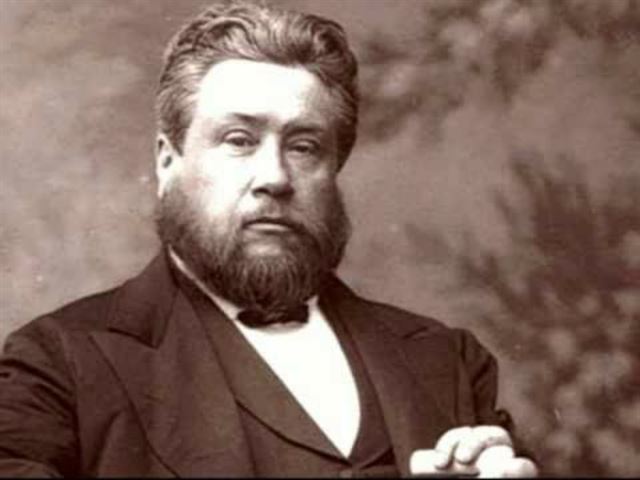1834-1892
Spurgeon was no Landmarker. Not only did he oppose (as I do) the practice of "ordaining" men as pastors by a presbytery (and the teaching that this is what constitutes a man an "ordained elder"), but also the idea that only "ordained elders" of a particular sect were the "authorized" persons to either administer baptism or the elements of the Supper.
Notice these words of the great "prince of preachers" (highlighting mine):
"It is very natural that our friends should desire their minister to baptize them, and yet there is no reason why he should do so on account of his office. It does not appear from the Scriptures to have been an act peculiar to preachers; in fact, at least one of them, and he by no means the least, was not sent to baptize, but to preach the gospel. A vigorous Christian member of the church is far more in his place in the baptismal waters than his ailing, consumptive, or rheumatic pastor. Any objection urged against this assertion is another unconscious leaning to tradition, if not a relic of superstition. The usefulness of the ordinance does not depend upon the baptizer, but upon the the gracious meditation and earnest prayer of the person baptized: the good which he will receive will depend upon how far his whole soul is receptive of the divine influence, and in no sense, manner, or degree upon the agent of the baptism. We do not know what Paedobaptists think upon their ceremony, but we fear that the most of them must have the minister to do it, and would hardly like their infants to be left to the operation of an unordained man. If it be so, we do not so very much wonder at their belief, for as it is clear that no good arises to an infant from its own prayers or meditations during the ceremony, there is a natural tendency to look for some official importance in the performer of the rite; but yet we do not and cannot believe that our Paedobaptist friends have fallen so low as that; we make no charge, and hope we shall never have cause to do so. For Baptists to attach the smallest importance to the ordinance of baptism being administered either by a minister or a private member would be to the last degree inconsistent, and yet we are not sure that the inconsistency is not to be found in many quarters. It behooves ministers to break down in time every tendency to make us into necessary adjuncts of the ordinances, for this is one step towards making us priests." ("Ordination and Religious Titles" in the Sword and Trowel, Volume 4, 1874 pages 111-117 - see here)
Do I hear an "amen"?

2 comments:
Whole heartily agree with Spurgeon on this issue. To make a "minister" the only proper administrator or baptism or the Lord's Supper, has no warrant in Scripture and makes ministers the dispensers of grace itself. It is the greatest folly of the so called "churches of Christ" who insist that only an ordained minister of their faith and order can baptize and thus 'save" the one being immersed. On outward appearances these churches seem like the total opposite of Roman Catholicism,yet in both systems, salvation is at the hands of another man. I dare say that if one was converted in a nation such as Saudi Arabia where no minister can be found, that were that person me, I would baptize myself!
Dear brother Kenny:
Thanks for your comment. Your insightful comments are welcome.
I will be continuing this series, the Lord willing, in the near future. Lots of historical materials to peruse on this long fought issue among Baptists.
I dealt with a lot of this when in my series on Hardshell Landmarkism.
Blessings,
Stephen
Post a Comment